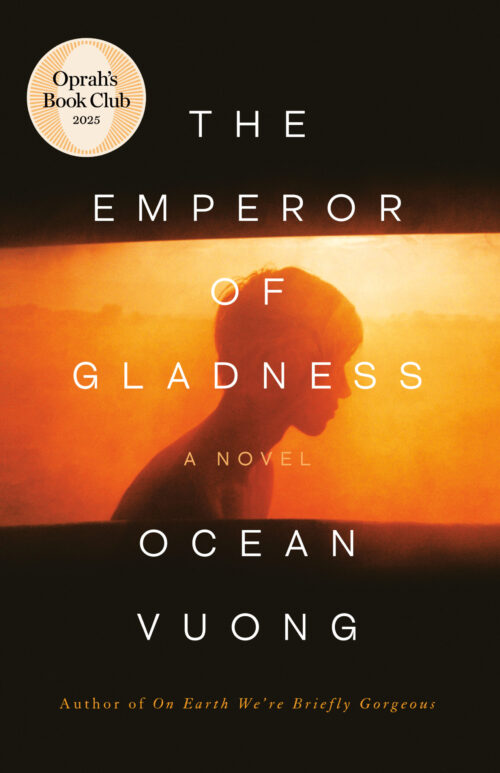This review contains affiliate links, which earn me a small commission when you click and purchase, at no extra cost to you. Thank you for supporting my small business and allowing me to continue providing you a reliable resource for clean book ratings.
From the publisher:
One late summer evening in the post-industrial town of East Gladness, Connecticut, 19-year-old Hai stands on the edge of a bridge in pelting rain, ready to jump, when he hears someone shout across the river. The voice belongs to Grazina, an elderly widow succumbing to dementia, who convinces him to take another path. Bereft and out of options, he quickly becomes her caretaker. Over the course of the year, the unlikely pair develops a life-altering bond, one built on empathy, spiritual reckoning, and heartbreak, with the power to alter Hai’s relationship to himself, his family, and a community at the brink.
Following the cycles of history, memory, and time, The Emperor of Gladness shows the profound ways in which love, labor, and loneliness form the bedrock of American life. At its heart is a brave epic about what it means to exist on the fringes of society and to reckon with the wounds that haunt our collective soul. Hallmarks of Vuong’s writing – formal innovation, syntactic dexterity, and the ability to twin grit with grace through tenderness – are on full display in this story of loss, hope, and how far we would go to possess one of life’s most fleeting mercies: a second chance.
Rapid Rating: High.
Profanity includes 126 uses of strong language, around 90 instances of moderate profanity, about 65 uses of mild language, and about 20 instances of the name of Deity in vain. Sexual content includes references to an addict, self-pleasuring, prostitutes, and some crude words. Violence includes references to fake gunfights.
Click here to purchase your copy of The Emperor of Gladness on Amazon.




